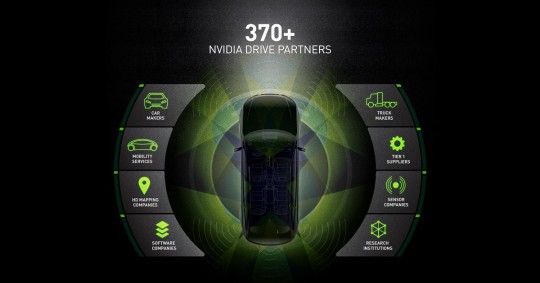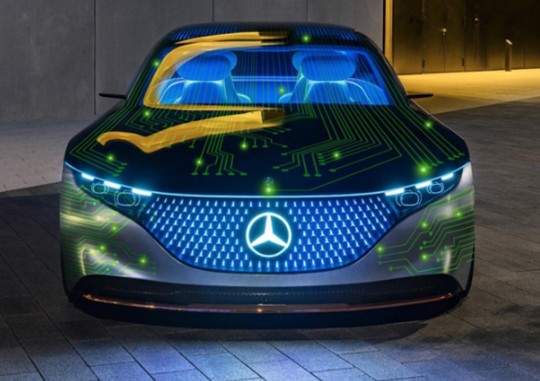That said, Nvidia$NVIDIA Corp(NVDA)$ has its hands in so much more than rendering graphics for triple-a video games. They dip their toes and sometimes a whole lot more into a slew of different industries and fields of science. Many of these fields blend the world of microchips and digital beep-boops with the grease, grit, and oil of the auto industry.
For more background information, Nvidia was founded by a team of just three computer engineers in Santa Clara, California, in 1993. In the beginning, their industry space was solely dedicated to 3D graphics processing. Their acquisition of the 3DFX company and their iconic Glide API in 2002 transformed the company into an industry juggernaut that still makes the world's best graphics processor units (GPUs) on the planet.
But it's not their top-of-the-lineRTXseries of graphics cards that are the purview of this feature. Instead, it's their less publicized but equally legitimate ventures with very legitimate automakers. Volkswagen$Volkswagen AG(VLKAF)$ , Jaguar-Land Rover, Mercedes-Benz$Mercedes Benz Group AG(DDAIF)$ , Volvo, and Hyundai are among the biggest contributors to Nvidia's "DRIVE" automotive infrastructure. An initiative that hopes to cater to every sphere of the auto industry metaverse.
As far as their DRIVE autonomous vehicle technology, people in high places in the industry, including their own corporate partners, are hoping Nvidia's proprietary chip architecture is capable of fulfilling a wide range of autonomous functions both in the software and hardware spaces. Nvidia's DRIVE Hyperion system is touted as one of the most advancedAVsystems on the planet. Using a combination of AI, radar, and compute-processing to create a virtual three-dimensional image nearly as vibrant and detailed as the one we can see with our own eyes.
Other companies, like the Google-funded Waymo, or the Ford$Ford(F)$ /Volkswagen-funded Argo AI, may have beaten Nvidia to wide-scale production of their technology. But Argo AI didn't gain the trust of Ford and VW by being the first in their field. But rather by taking their time to make sure their software and equipment work as they should before testing, Nvidia would be wise to heed the advice of their industry rivals and use the same approach with their own AV system. Lest they be the target of our scorn like Tesla's AV technology has in recent months.
With all these positive points in mind, It's important to understand that Nvidia hasn't always been the most ethically compliant company around. Especially after the very public PR nightmare surrounding the Nvidia vs. Hardware Unboxed YouTube channel controversy. Allegations of behind-the-scenes deals, with scalping rings during the launch of the 30 series of graphics cards, did little to help matters. Anyone who's seen hoards of people sleeping in tents the night before a graphics card shipment outside Micro Center computer stores knows precisely what we're talking about.
But what are your thoughts on Nvidiaas an auto industry force? Do you approve of their work in the field? Or, do you think they should stick to making graphics cards? Let us know in the comments down below.
Comments